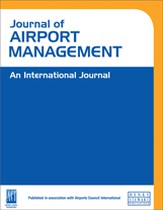An alternative methodology for evaluating airport expansion with particular focus on Heathrow
Abstract
Proposals to expand capacity at Heathrow Airport were in formal discussion since publication of the Air Transport White Paper in 2003, until recently when the new UK administration withdrew support for the project. The subject led to a highly motivated and polarised debate between those in favour and those against, with each side keen to demonstrate the strength of their case because they felt the stakes were so high. In 2009, the UK Government's Department for Transport published its impact assessment, the results of its cost-benefit analysis of different options for expanding Heathrow, including through the addition of a third runway. The impact assessment found there would be a net benefit from expansion; however, it did little to calm the debate because some important factors were omitted, particularly community impacts. In addition, the evidence presented was not seen to directly substantiate core arguments about the economic benefits. Research by the new economics foundation (nef) set out to apply an alternative methodological approach to evaluating a third runway at Heathrow using the principles of social return on investment. In contrast to the official government appraisal, which showed a net benefit to the UK from Runway 3 of £5.5bn in the central case, the results of nef's study found a headline net cost to UK society of £5bn. This included social and environmental costs that were at least £2bn higher than those estimated in the official government appraisal. This paper argues that by making transparent the direct and indirect economic, social and environmental impacts, social return on investment has the potential for improving public confidence in economic appraisals and the decisions which rely on them.
The full article is available to subscribers to the journal.
